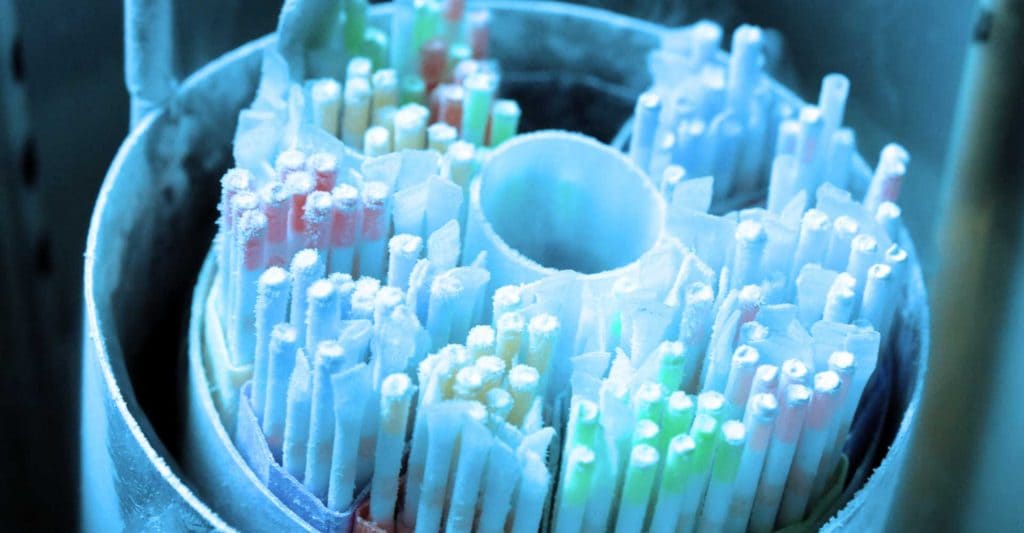Fertility Preservation
Fertility preservation is a vital medical option that protects reproductive tissues, allowing individuals to have children in the future. This process has gained importance as more people face health challenges or personal circumstances that might affect their ability to conceive. Through modern medical techniques, it’s now possible to safeguard fertility for those suffering from cancer or other medical conditions or simply planning for the future.
The methods of fertility preservation vary for men and women, but they all aim to protect reproductive potential. For women, options include egg freezing and ovarian tissue preservation, and for men, options include sperm freezing and testicular tissue freezing. As medical science continues to advance, fertility preservation is becoming an increasingly accessible and effective way to keep family planning options open.
What Is Fertility Preservation?
Fertility preservation is a process that safeguards reproductive tissues, allowing individuals to have biological children in the future. It involves saving or protecting eggs, sperm, embryos, or reproductive tissues such as ovarian or testicular tissue. This medical intervention uses advanced techniques to freeze these materials, protecting them from the effects of time, disease, or medical treatments that might alter reproductive capacity.
The purpose of fertility preservation is to give people a chance to have their own biological children later in life, even if their fertility is compromised due to various factors. It provides hope and options for those facing challenges to their reproductive potential.
Who might Need Fertility Preservation?
A woman’s fertility gradually diminishes over time, showing a steeper decline beyond 35 years as both egg count and quality decrease. This unavoidable biological progression makes getting pregnant harder for older women. Beyond natural age-related decline, several other circumstances lead individuals to consider fertility preservation:
- Medical Conditions: Cancer and its treatments, such as chemotherapy and radiation, can significantly impact fertility. Other conditions like autoimmune diseases, endometriosis or uterine fibroids may also affect reproductive abilities.
- Social Freezing: Those who wish to delay having children until their late 30s or early 40s to focus on establishing their careers or achieving personal goals may choose to preserve their fertility earlier in life.
Fertility Preservation Methods for Women
Fertility preservation for women offers several options to safeguard reproductive potential. These methods are particularly beneficial for those taking medical treatments that may adversely impact fertility or for women who wish to delay childbearing. A fertility specialist can guide women through the available options, helping them make informed decisions about their reproductive future.
- Oocyte Cryopreservation: Egg freezing, or oocyte cryopreservation, is a widely used fertility treatment. This process involves boosting the ovaries to produce multiple eggs, which are then harvested/retrieved & frozen for future use. The eggs are rapidly frozen using a technique called vitrification, which helps prevent ice crystal formation and improves survival rates upon thawing. Egg freezing allows females to preserve their fertility at a younger age, potentially increasing the chances of a successful pregnancy later in life.
- Embryo Freezing: Embryo freezing is another effective method of fertility preservation. This process involves creating embryos through in vitro fertilization (IVF) and freezing them for future use. Embryos can be stored for extended periods, giving women the flexibility to pursue pregnancy when they are ready.
- Tissue Freezing: Ovarian tissue freezing is a newer technique. This procedure involves surgically removing and freezing a portion of the ovarian tissue containing immature eggs. The tissue can later be thawed and reimplanted, potentially restoring ovarian function and fertility. This method is precious for women who need to start cancer treatment urgently and don’t have time for ovarian stimulation.
Each of these methods has its advantages and considerations. The choice depends on individual circumstances, medical conditions, and personal preferences. Consulting and seeking help from a fertility specialist can help you arrive at the most appropriate fertility preservation option. These techniques offer hope and possibilities for women facing fertility challenges, allowing them to take proactive steps towards their future family planning goals.
Fertility Preservation Methods for Men
Fertility preservation for men offers several options to safeguard reproductive potential. These methods are particularly beneficial for those taking treatments that may affect fertility or for men who wish to delay fatherhood. A fertility specialist can guide men through the available methods, helping them make informed decisions about their reproductive future.
Sperm Cryopreservation: Sperm freezing, also known as sperm cryopreservation, is the most common and successful method of preserving a man’s fertility. This process involves collecting a semen sample, usually through masturbation, and freezing it for future use. The sample is mixed with a fluid called a cryoprotectant that protects the sperm from damage during the freezing process. The sperm is then divided into several containers called straws and cooled slowly before being plunged into liquid nitrogen for storage.
Sperm can be stored for several decades, with reports of successful pregnancies using sperm frozen for up to 55 years.. When a person needs them, the frozen sperm can be thawed & used in various fertility treatments, including in vitro fertilization (IVF), intrauterine insemination, and intracytoplasmic sperm injection. The success rates of these treatments using frozen sperm are comparable to those using fresh sperm.
Testicular Tissue Freezing: For men who cannot produce sperm through ejaculation or have very low sperm counts, testicular tissue freezing is an alternative option. In this method, the doctor surgically removes a small portion of testicular tissue, which is then cryopreserved and stored. This technique is beneficial for prepubertal boys facing cancer treatments, as they cannot produce mature sperm.
Both sperm freezing and testicular tissue freezing provide hope for men facing fertility challenges, allowing them to take proactive steps towards their future family planning goals.
Choosing the Right Preservation Method
Choosing the right fertility preservation method is a personal decision based on your unique situation. Key factors like your age, current health, and reasons for considering preservation will determine the best path for you. The most important step is a thorough consultation with a fertility specialist. They will review your specific circumstances and help you understand the most suitable options, allowing you to make a confident and well-informed choice.
Summary
Fertility preservation offers hope and possibilities to those facing challenges to their reproductive potential. It gives people the chance to have biological children later in life, even when their fertility might be at risk. The methods available, such as egg freezing for women and sperm freezing for men, have made a significant impact on family planning options. These techniques allow individuals to take control of their reproductive future, whether they’re dealing with medical problems or simply not ready to start a family yet.
As medical science progresses, fertility preservation becomes more accessible and practical. It’s not just for people with health problems anymore – it’s also for those who want to plan ahead. This field is changing how we think about having children and giving people more choices about when to start a family. For anyone considering fertility preservation, it’s crucial to talk to a specialist to understand their options and make the best decision for their future.
✅
Medically Reviewed & Verified By

Dr. Jyothi C Budi
Medical Director, Reproductive Medicine and Gynecology
Experience: 20+ Years | View Doctor Profile →
This page has been medically reviewed to ensure accuracy, clinical relevance, and alignment with current fertility treatment standards.
This page was last updated on :
8 Jan 2026HAVE MORE QUERIES ABOUT Cryopreservation AND ITS TREATMENTS? ASK OUR EXPERTS
Contact UsIt is advisable to start the fertility preservation process as early as possible. Prompt consultation with a healthcare provider can help determine the best timing and approach tailored to individual needs.
Success rates for fertility preservation vary significantly based on the chosen method and individual health factors. It is crucial to discuss these rates with a fertility specialist to understand personal chances.
The most common methods include freezing eggs, sperm, or embryos, as well as preserving ovarian tissue for future use.
Fertility preservation is essential for cancer patients undergoing treatments that may affect fertility, individuals with specific health conditions that could impair reproductive function, and those who are choosing to delay parenthood for personal or professional reasons.
Fertility preservation refers to the medical techniques used to protect and store reproductive tissues, such as eggs, sperm, or embryos, to enable individuals to have children in the future, even if they face health challenges or age-related fertility decline.








